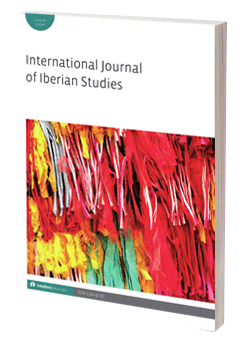History of the Association for Contemporary Iberian Studies
The origins of ACIS (Association for Contemporary Iberian Studies) can be traced back to the 1970s when higher education in the United Kingdom was transformed by the establishment of the Polytechnics and Colleges of Higher Education. The teaching of Spanish in these new institutions differed in a number of ways from the older-established universities which were primarily literature-focused, notably through a greater emphasis on applied or spoken Spanish and Portuguese and a broader Humanities, Social Science and Business Studies curriculum.
Middlesex Polytechnic hosted the inaugural gathering of what was initially named the Iberian Social Studies Association in 1978 and conferences have taken place annually in September for the past 39 years. The venues reflect the growth of the Association and the spread of its influence. Initially held in the Polytechnic sector (Bristol, Chester, Leeds, Manchester, Portsmouth, among others), the annual conferences began to be held at older-established universities such as Edinburgh, Dublin and Kings College, London as well as in Spain and Portugal. The first conference outside the UK was held in Santander at the University of Cantabria in 1992, followed by regular forays to the Iberian Peninsula, including Valencia (2002) and Madrid (2015), Minho (2006), Coimbra (1997), Lisbon (2013) and Porto (2016). The conferences held in Dublin and Limerick were testimony to the links to the Irish academic community with interests in Luso-Hispanic area studies.
One of the most notable developments in recent years has been the growing number of scholars from beyond the UK and the Republic of Ireland attracted to our conferences, not only from Spain, Portugal and other European states but also from North and South America, Israel, Australia, New Zealand and Japan. Increasingly, conference panels and papers addressed issues relating to Iberia’s integration into the European Union and relations with the Spanish and Portuguese-speaking world, particularly Latin America. Panel topics have been both single and multi-disciplinary in approach and reflect the growth of new areas of teaching and research, including translation, new technologies and language-learning, cultural, film and media studies and the latest developments in Iberian history, politics, economics and social change.
The Association is fortunate to have the historian Paul Preston as our President. His international reputation, academic output, and encouragement has been crucial in our growth and success. We are also honoured to count the late Sir Raymond Carr as a past President. As with any enterprise of this type, mention must also be made of the Chairs and Committee members whose hard work and enthusiasm steered the Association through sometimes difficult times. Among the pioneering Chairs, Gareth Thomas, Alex Longhurst and Teresa Lawlor deserve mention for their work that enabled their successors, including Eamonn Rodgers, David Corkill and Lourdes Melcion, to grow ACIS into what it is today. Founding members to whom we also owe a debt of gratitude also included Rob Rix, Mike Newton and Francisco Ariza, Paul Bangs and the late José Amodia. None of this could have been achieved without the tireless efforts of the Secretary and other Executive members, Conference Organisers, Editors and the Editorial Committee along with countless others.
In the early days, conference proceedings were published in fairly rudimentary soft-bound form and it became clear that for a wider distribution befitting the quality of the papers delivered an outside publisher had to be found. In 1988 the first edition of the Association’s journal appeared as a semi-annual publication, a forerunner having been John Naylon’s work with the Iberian Studies Journal. The current agreement with Intellect was signed in 1995 by the first editor José Amodía, and began with volume 9 since volumes 1 to 8 had been published as the Journal of the Association for Contemporary Iberian Studies. From 1996 onwards, IJIS was published three times a year and is now a respected outlet for research in the field, having developed under the editorship of Hugh O’Donnell and Monica Threlfall. In recent years IJIS has included an opportunity for postgraduates in particular to contribute to the Open Forum section. Conference bursaries and a regular newsletter have also provided support to postgraduates in recent years and they are now also represented on the Executive Committee.
David Corkill, February 2017
Annual conference since 1978
Conferences of the Iberian Social Studies Association
1978 Middlesex Polytechnic
1979 Leeds Polytechnic
1980 Bristol Polytechnic
1981 Cambridgeshire College of Arts & Technology
1982 Manchester Polytechnic
1983 Hatfield Polytechnic
1984 Buckinghamshire College of Higher Education
Joint Conferences of Hispanists in Polytechnics and Other Colleges and the Iberian Social Studies Association
1985 Keele University
1986 University of Newcastle
1987 Wolverhampton Polytechnic
Conferences of the Association for Contemporary Iberian Studies
1988 Bristol Polytechnic
1989 University of Bradford
1990 Lancashire Polytechnic
1991 University of Exeter
1992 University of Cantabria, Santander
1993 Manchester Metropolitan University
1994 University of Portsmouth
1995 Queen’s University, Belfast
1996 Keele University
1997 University of Coimbra, Portugal
1998 Edinburgh University
1999 Trinity & All Saints University College, Leeds
2001 University of Essex
2002 University of Valencia
2003 University College, Chester
2004 University of Limerick, Ireland
2005 University of West of England, Bristol
2006 University of the Minho, Braga, Portugal
2007 Oxford Brookes University
2008 University of Chester
2011 University of West of Scotland/University of Glasgow
2013 Universidade Católica, Lisbon
2014 University of Westminster
2015 Universidad Autónoma de Madrid
2016 Universidade Católica, Porto
2017 University of East Anglia, Norwich
2022 Universitat de les Illes Balears
Past Chairs of the Association
Gareth Thomas, Alex Longhurst, Robin Warner (1995-1999)
Teresa Lawlor (1999-2003)
Eamon Rodgers (2003-2005)
David Corkill (2005-2010)
Lourdes Melcion (2010-2016)
Mark Gant (2016-2021)

